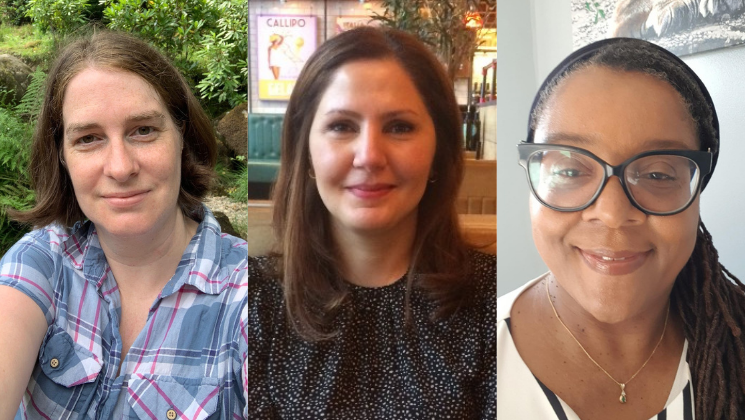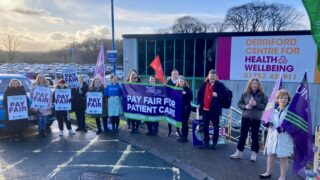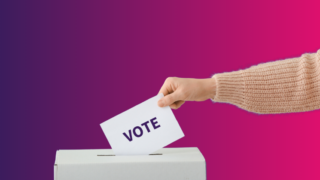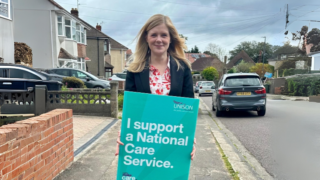This year, the theme for International Women’s Day is #BreakTheBias. We spoke to a few members of the South West Regional Women’s Committee about what that means to them.
Kathy Toms
Kathy joined the Regional Women’s Committee three years ago when a UNISON workshop brought her love of singing back.
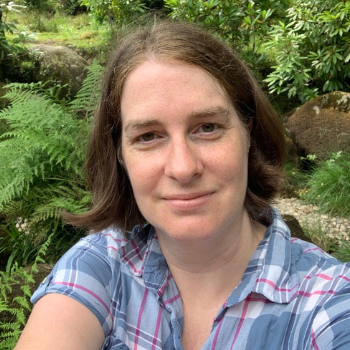
How have you championed bias in your workplace or community?
The best example I can give is the response I got when I first raised the idea of a menopause policy with my workplace. “Why do we need that?” said the predominantly male management team. It had simply never occurred to them that the menopause might be responsible for high absence levels among the female workers, and how easy it would be to put very small changes in place that would make women feel safe, supported and happy at work. Unconscious bias is harder to challenge everywhere, never mind in the workplace but there’s a gradual awareness growing among our male colleagues that we face different challenges, and there’s a lot that can be done to improve things.
Why is equality for women important?
I think the contribution of women to society in general has been hugely side-lined over the millennia. It doesn’t make sense for a society to marginalise 51% of their members. Too many people seem to think that equality for women has been achieved, but I think there’s still quite a way to go. Equality is one thing, but we need to strive for equity – where rather than helping women over the barriers, those barriers are removed entirely.
Why did you become active?
I became active in my branch almost by default! I returned to work after maternity leave to find a restructure going on, and members departing in droves. Only a handful of members remained to keep the branch afloat. Eight years later we’ve successfully developed the branch, built our membership up and have a good working relationship with the leadership team at my work place.
I joined the Regional Women’s committee at conference three years ago. After losing my hearing I stopped singing – a workshop at Croyde with Tan Teddy Jamaican Folk Singers brought my love of singing back, and the support and encouragement of the women I met made me want to give something back. I’m still a terrible singer, but who cares – it makes me happy! I want other women to share in that.
Nasim Dumont
Nazim is the Women’s Office for UNISON’s University of West of England Branch.
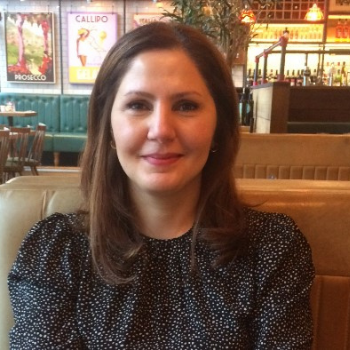
How have you championed bias in your workplace or community?
Having effective conversations about the subject, creates a safe environment for members to share their experience on experiencing bias at work place and how they felt and how it affects their work and them as an individual. Offering training to share the important information on how as an individual to identify and protect themselves. Additionally, I set up regular meeting with our members to discuss any subject they wish to discuss and share with each other including bias and unconscious bias at work.
Why is equality for women important?
Considering the high number of employees at workplace are women, it is only logical and right that we make sure we have equality for women and men at the top of our agenda.
Why did you become active?
As a woman I always believe that we need to make our voice heard and also support each other. I also believe that educating men about Women’s right is the first important and crucial action and needs to take place from early ages. I don’t think us women should constantly think of new ways to protect ourselves when we can spend that time creating new and more exciting things. This needs to be embedded in our mind-set and a goal to achieve.
Valerie Watkis
Valerie is a member of Gloucestershire Local Government branch.
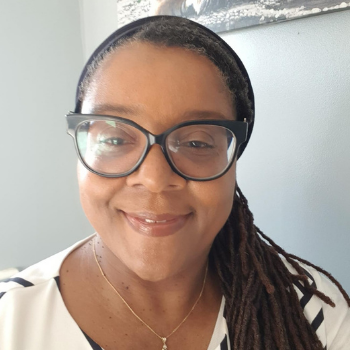
How have you championed bias in your workplace or community?
We can begin to bring balance to our lives and those of other women and girls by coaching and supporting each other and I believe this is the role of the Women’s Committee. New behaviours are learnt, so let’s take that step and call out bias.
Why did you become active?
I joined the Regional Women’s Committee last year. I am doubly aware of the bias that exists towards women and I see my role as sharing my life’s experiences to support and empower women on a one to one basis.

